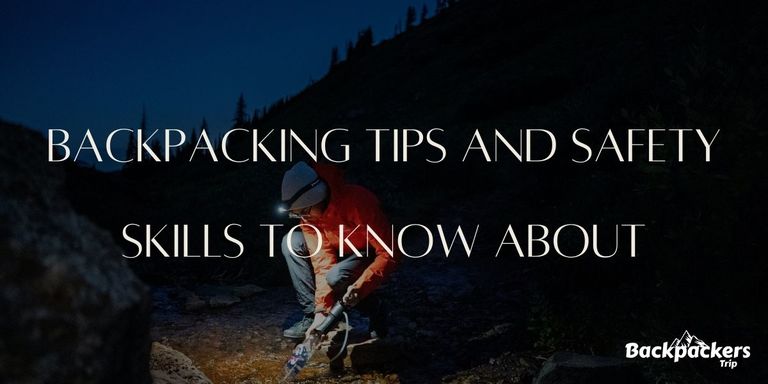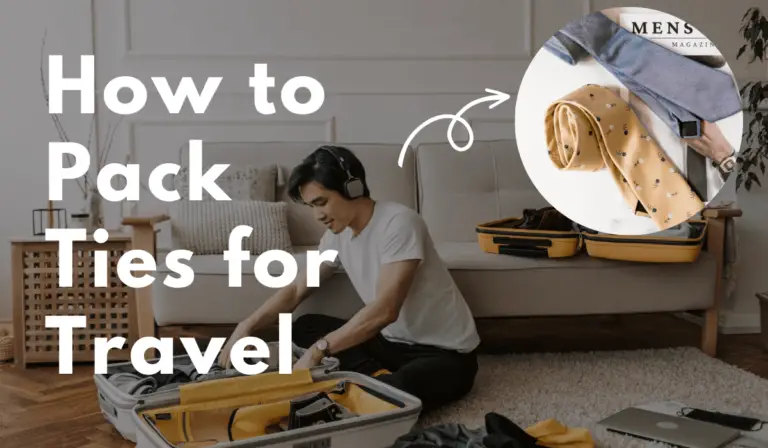How to Pack Toilet Paper for Backpacking: Both Unused And Used
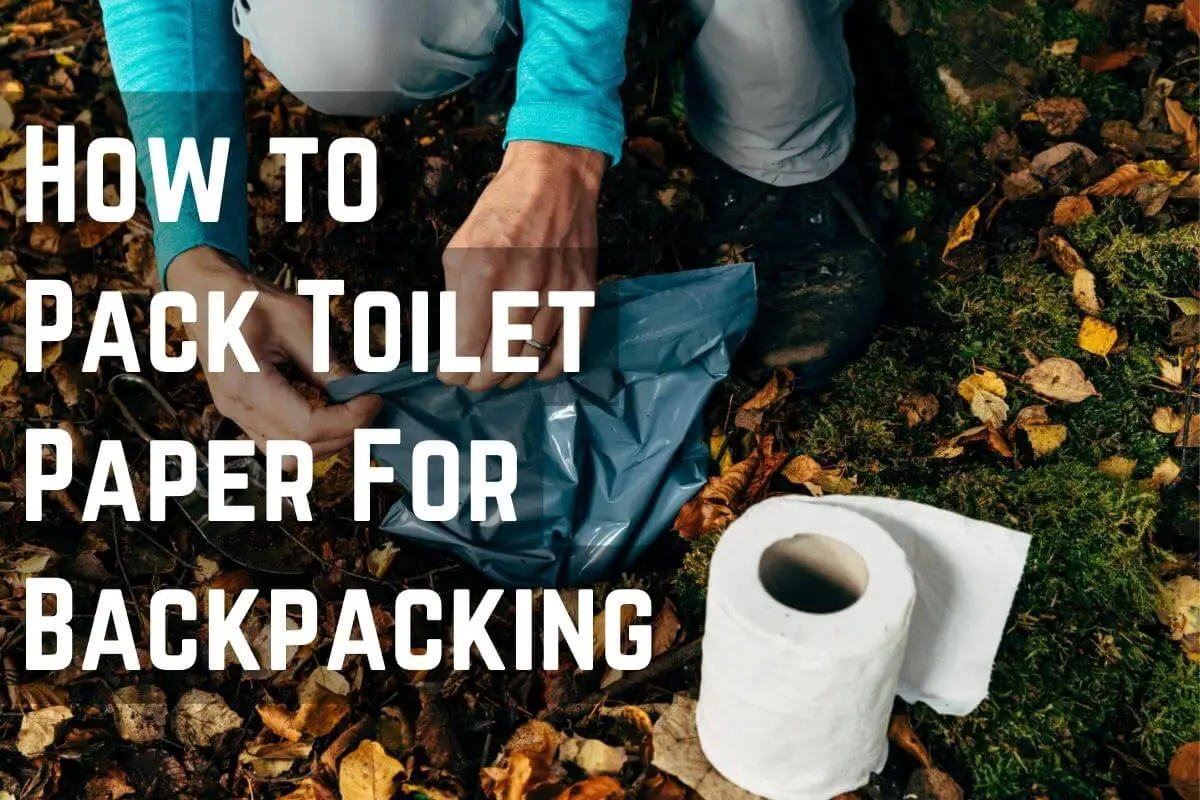
While an outdoor adventure we have the opportunity to explore nature from closer. But we should remember, it comes with the responsibility to keep the environment properly hygienic; especially when it comes to the call of nature. In this blog let’s go through the ways on how to pack toilet paper for backpacking to have a hassle-free and hygienic outdoor expedition.
During camping, hiking or just enjoying nature, it is a natural and sometimes necessary part for travelers__ that is poop and pee. But after nature calls make sure you leave nothing but footprints. Always try to maintain personal hygiene by employing some ways like using toilet paper, the rock n’ roll method, using water, digging a hole and putting the trash, and many more.
Always try to maintain personal hygiene by employing some ways like using toilet paper, the rock n’ roll method, using water, digging a hole and putting the trash, and many more.
Of all of the methods, carrying tissue paper is the easiest and most comfortable way. It is a travel-friendly, lightweight, and small-sized equipment for travelers. It helps travelers to keep the environment and themselves clean and dry. But having the right toilet paper and using it correctly is essential. Today we will talk about the right way of packing and usage of toilet paper.
How to Pack Unused Toilet Paper for Backpacking
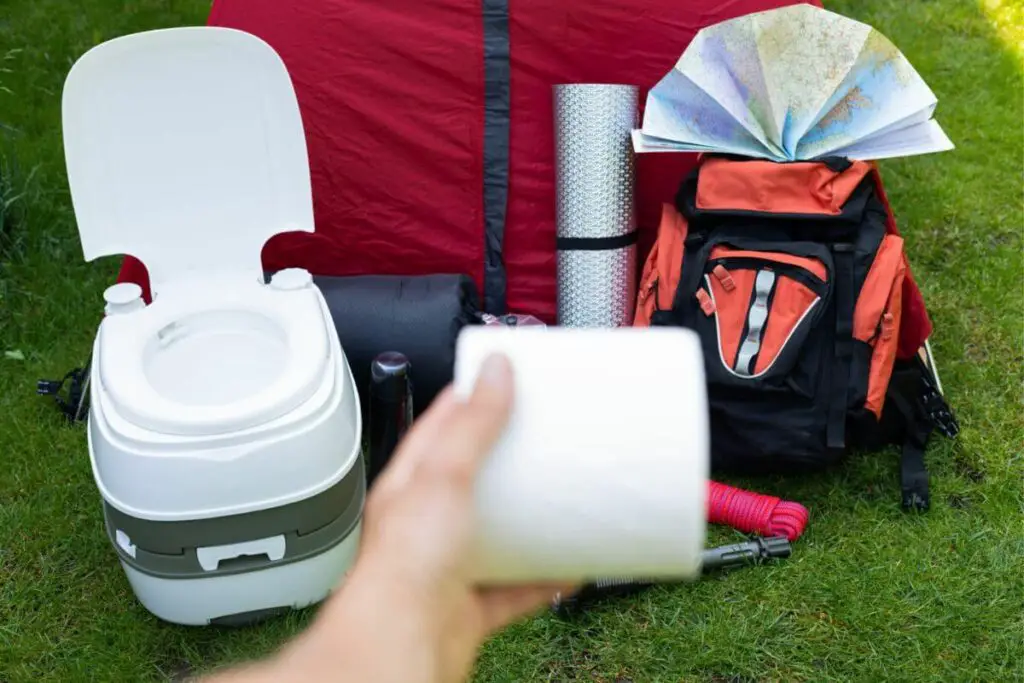
As a traveler when you are packing toilet paper, it requires some consideration to ensure it remains small, secured, and easily available. Knowing every ins and outs on how to pack and carry toilet paper can minimize the bad impact on the environment. Thus, here’s a guide on how to pack unused toilet paper for backpacking.
Travel-Sized Rolls:
Choose toilet paper rolls or packs that are specially made for travelers. These are often lighter and more portable than typical household rolls. It takes up little space in a backpacking backpack and travelers can comfortably carry it out.
Remove Cardboard Tube:
Remove the cardboard tube from the middle of the toilet paper roll to save space. By doing this, the roll becomes small in size, easily packable, and loses bulk.
Roll Up The Toilet Paper:
How the toilet paper comes on a cardboard tube; similarly roll up the toilet paper into a tight roll without the cardboard. It creates spaces on itself and you can carry more toilet paper if you need it.
Zip-Top Bags:
Try to keep the toilet paper rolls or packs in zip-top bags. This will help to protect the toilet paper from extra moisture and keep the paper dry and clean.
Waterproof Container:
Carry a small travel-sized waterproof container or a sealed plastic container to keep your toilet paper dry and protected.
Portable Tissue Dispenser:
Pick up a travel-sized portable tissue dispenser. These usually come with a strap or clip for easy attachment to your bag.
Toilet Paper Tablets:
Explore the compressed and compacted versions of toilet paper which are known as tablets. These can be comfortable, space-saving, and lightweight alternatives.
Recycle a Pill Bottle:
You can reuse an empty, clean fresh pill bottle to store a small amount of toilet paper. This offers an extremely durable and waterproof container.
Toilet Paper Holder:
Some outdoor retailers sell lightweight and compact toilet paper holders specifically designed for backpacking. These can protect and organize your toilet paper.
Portable Toiletry Kit:
If you have a tiny travel-sized toiletry kit, dedicate a space for your toilet paper roll. This keeps everything organized and easily accessible.
Carry In Your Jacket Pocket:
For day trips or quick outings, you can keep a small amount of toilet paper in the pocket of your jacket.
Resealable Plastic Bag:
Before packing toilet paper in a resealable plastic bag Squeeze out extra air from the toilet paper. This makes the package smaller and protects it against water or spills.
DIY Tissue Packs:
By Folding a few sheets of toilet paper and putting them in tiny zip-lock bags, you can make your own DIY tissue packs. With this DIY method, you can modify the amount of each pack.
Try To Keep It Fresh:
To keep your toilet paper fresh, store it in a waterproof container or a dry place. It prevents moisture; which can harm the quality of the paper.
Maintaining hygiene outdoors is an essential part of backpacking. By following these tips you can maintain proper personal hygiene and may keep the environment clean and fresh. It helps future travelers to make a positive and delightful experience.
How to Pack Used Toilet Paper for Backpacking
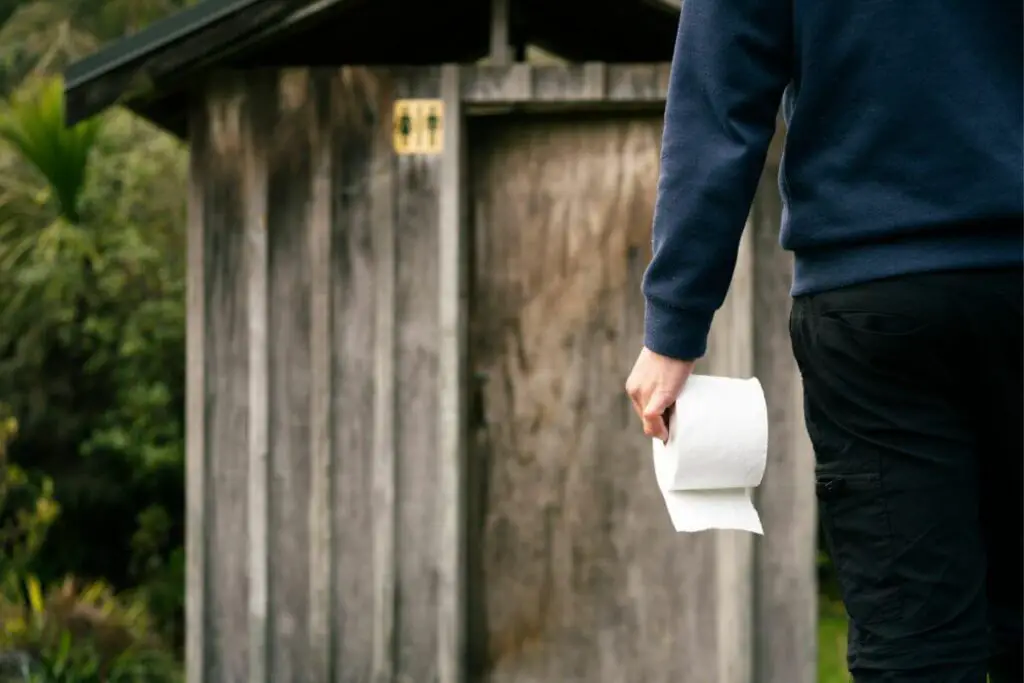
Packing used toilet paper after a trip, especially in an outdoor or rural environment, requires responsible waste management. Here are some tips for handling used toilet paper while backpacking:
Sealed and Odor-Proof Bag:
Keep a small, odor-proof, and sealable bag with you to store out used toilet paper. Remember, this bag should be strong enough to prevent leaks and hold in any smells. Also, carry an extra one in case the first one gets compromised or you need to bag the waste twice.
Apply a Double-Bag method:
For better containment, try to use a double-bag method. Place the sealed bag containing used toilet paper inside another sealed bag for better protection.
Ash Disposal Container:
If you are in a permitted burning area, you can burn used toilet paper and other burnable waste; and carry it out into a tiny ash disposal container.
Label Waste Bags:
To easily identify your waste disposal bags from other items in your backpack, make sure to clearly label them. This helps to reduce the chance of confusion or accidental opening.
Remember that, disposing of waste responsibly is an essential ethic, and the following make it easy for you. Whether you are a nature enthusiast, a seasoned traveler, or someone who is stepping into the great outdoors for the very first time always try to follow the points and keep the leave-no-trace method in your priority.
Choose the Right Toilet Paper for Backpacking
For cleansing yourself and keeping the environment fresh, it is essential to choose the right toilet paper for backpacking. Here are some tips to help you select the appropriate toilet paper for your backpacking trips:
Compact and Travel-Friendly:
Always try to keep toilet paper that comes in small sizes and travel-friendly packaging. Look for individual packets, travel-sized rolls, or folded sheets that are easy to carry. Some brands provide individually wrapped rolls or compressed rolls that are available and easy to pack in a backpack. Besides some rolls are sold without the traditional cardboard tube which reduces bulk and weight.
Soft and Gentle:
Choose soft and gentle tissue paper that is not harsh on your skin, especially if you have sensitive skin. You can also use this kind of tissue paper for your facial purposes.
Biodegradable Tissue Paper:
Keep nature-friendly and biodegradable tissue paper that maintains proper hygiene and is easily disposable.
Quick Absorption and Odor-free options:
Select tissue paper that offers quick absorption and effective cleansing. It has the potential to make you fresh and comfortable immediately. If you have sensitivities, try to keep the odor-free toilet paper. Fragrance-free options are more suitable for sensitive skin.
Wet Wipes:
For added convenience, try to purchase travel-sized wet tissue wipes. These can be useful for rehydrating yourself during long trips.
Whether you are on a short or an extended adventure, having the right toilet paper ensures your convenience and comfort. Always choose products based on your preferences that are appropriate for you and the environment.
Conclusion
Nature has its beauty and freshness. It is important to respect the natural and cultural environments you visit. By adopting responsible waste disposal methods you can ensure that the environment remains preserved and sustained.
Choosing the right toilet paper is one of them. Also packing the used and unused toilet paper properly is crucial for a responsible outdoor experience. It can enhance your comfort and hygiene in every condition. By including these considerations in your backpacking routine, you observe a positive experience for yourself and future generations of outdoor enthusiasts.


